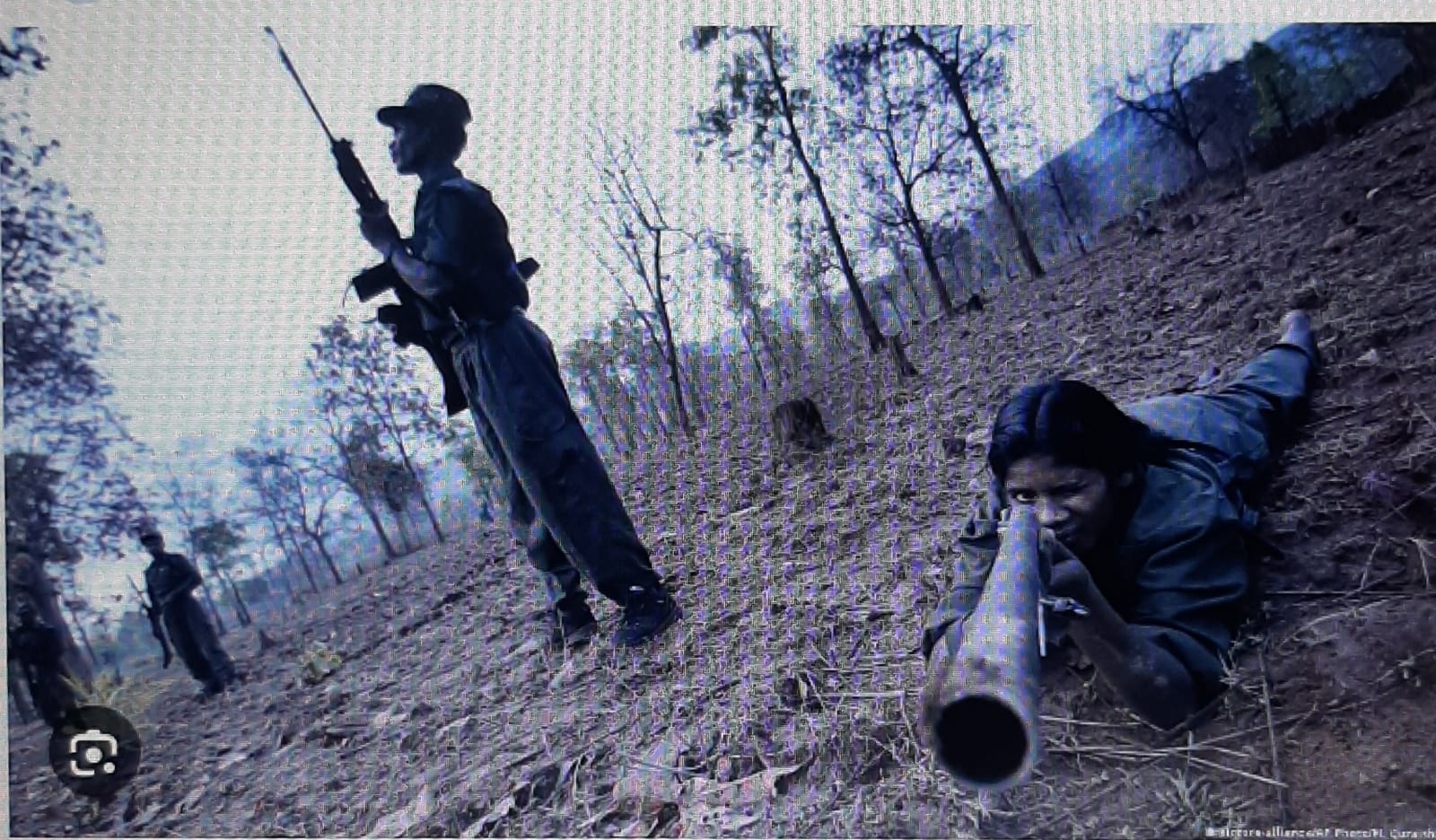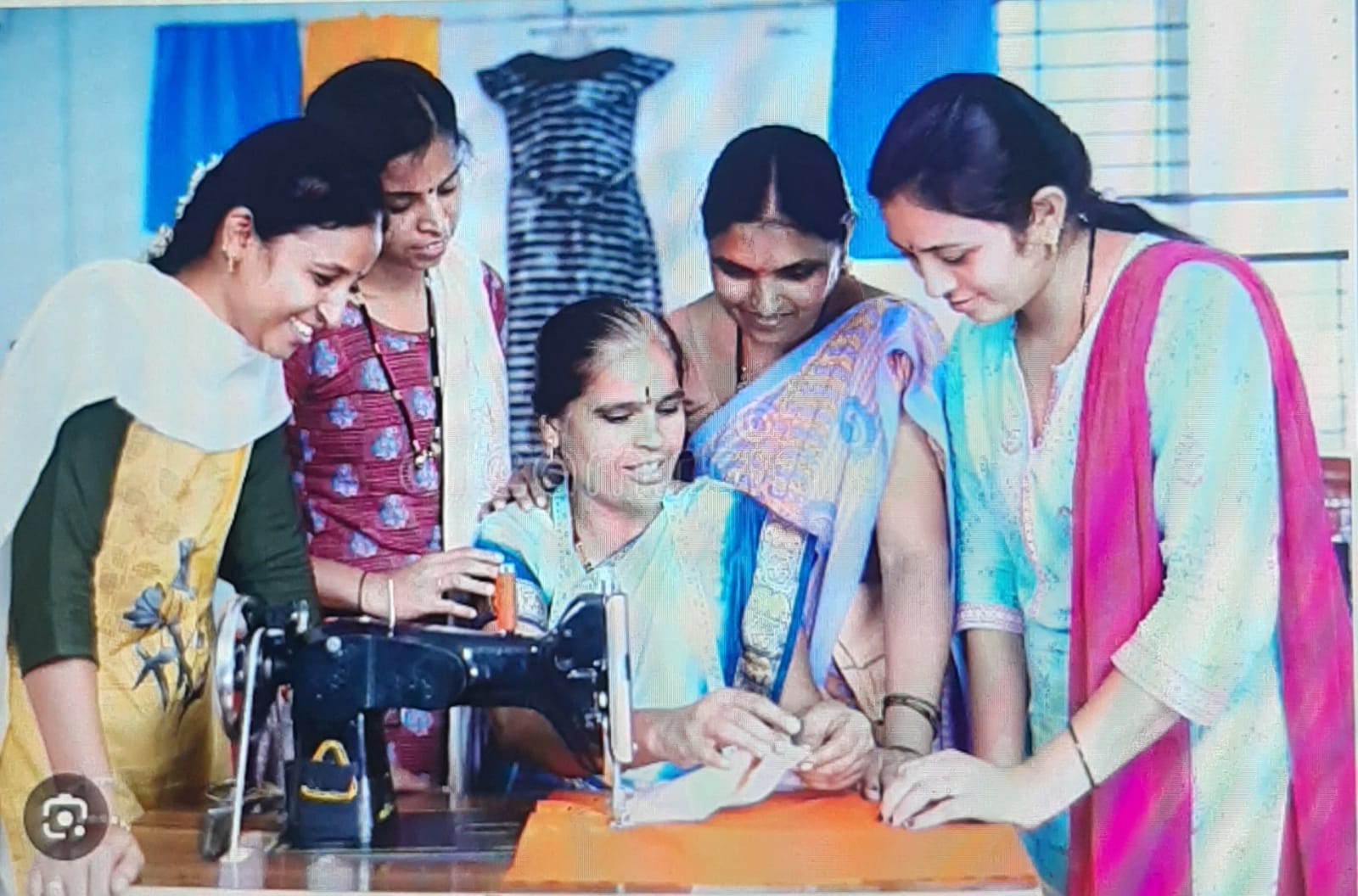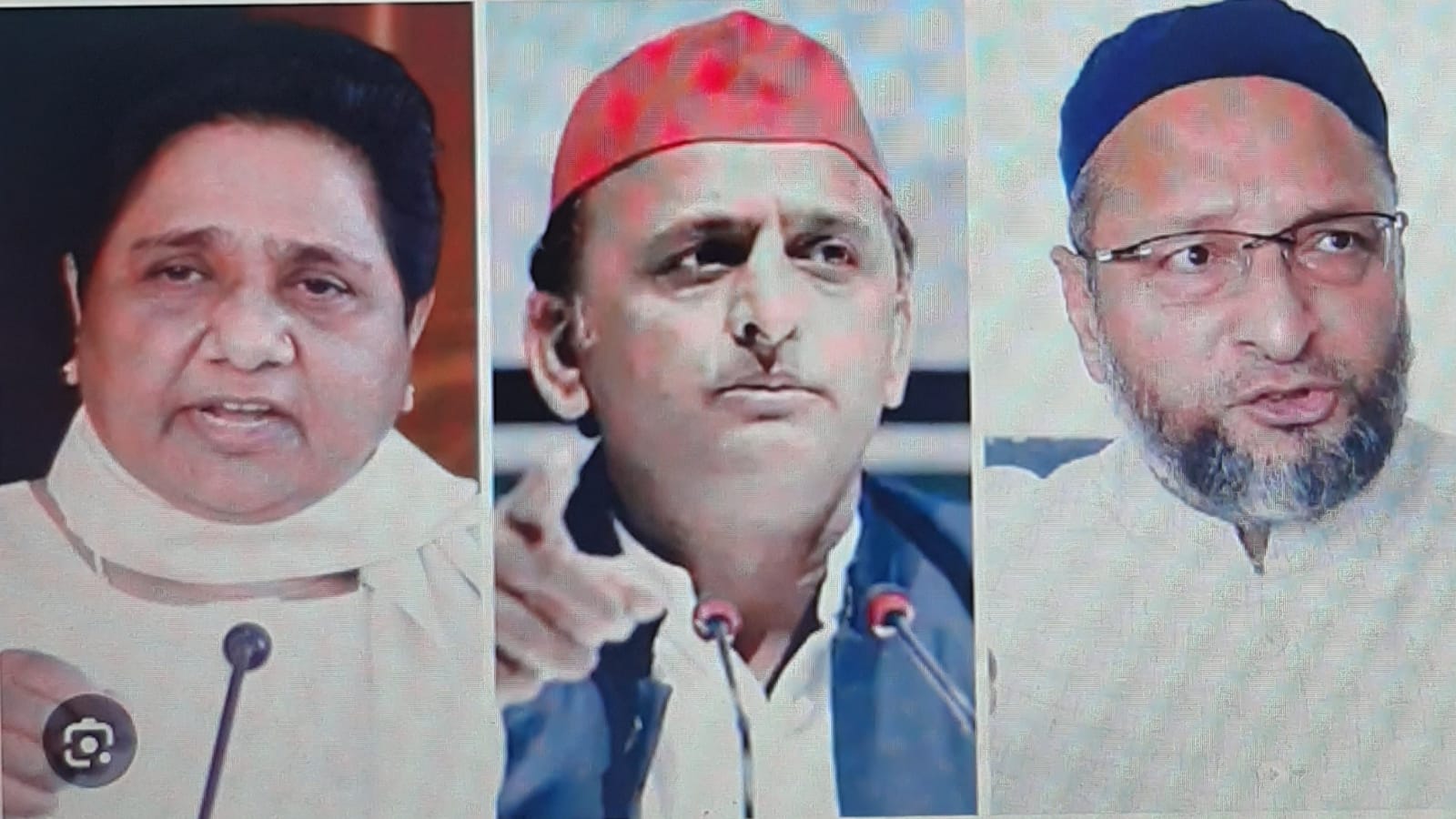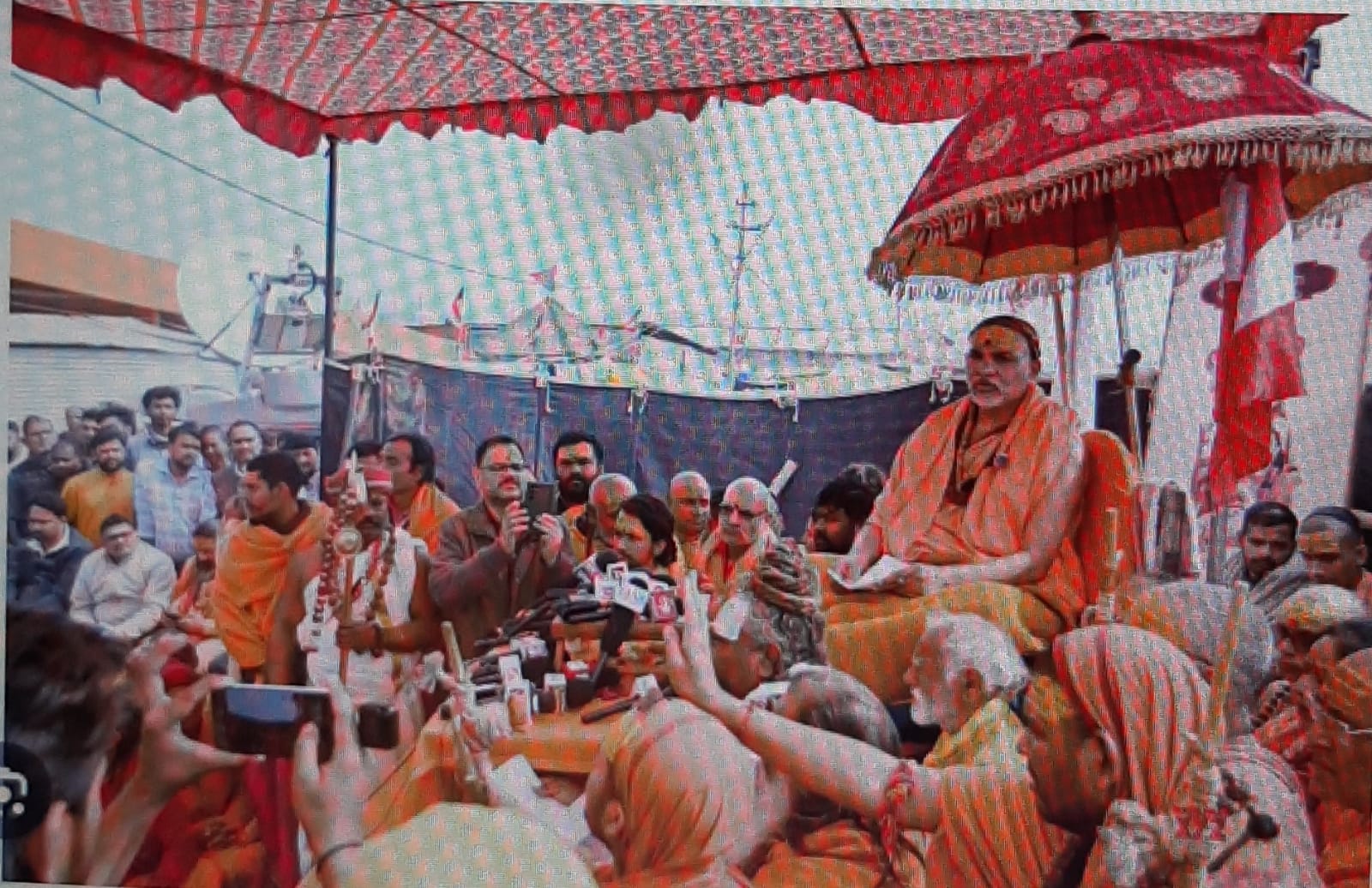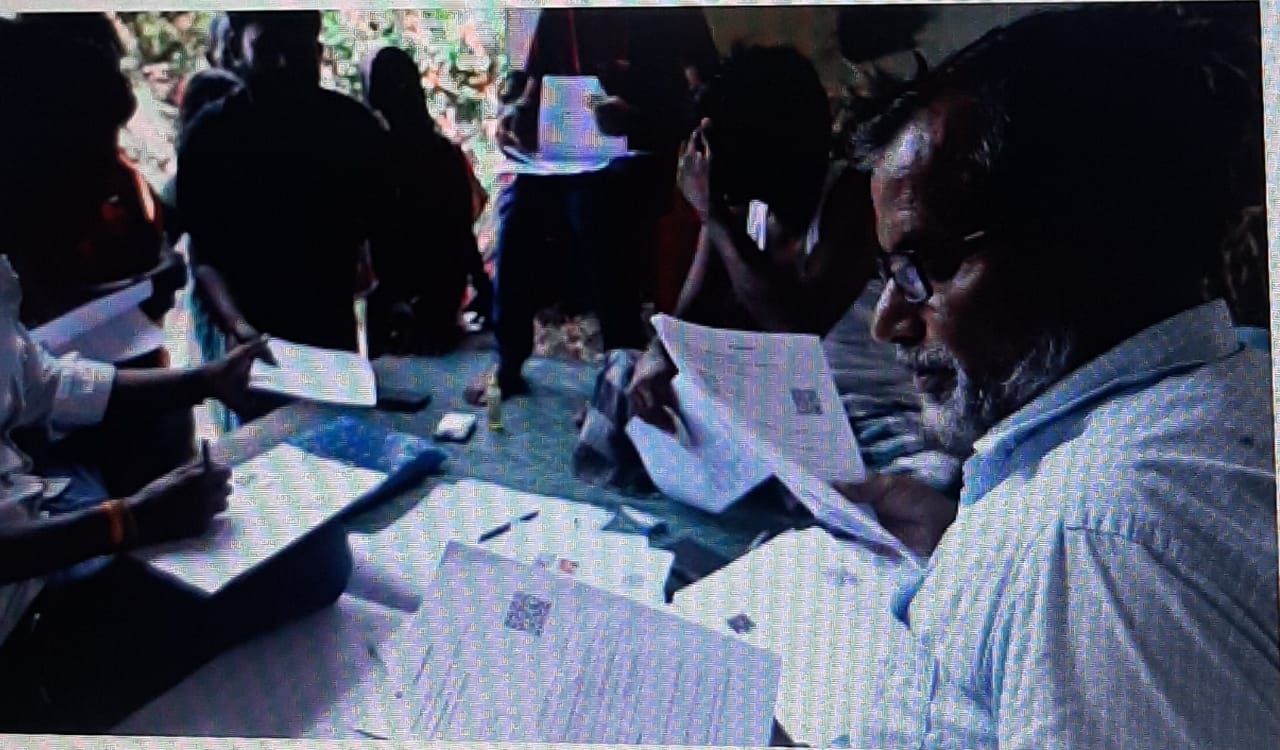
It is time to fix responsibility and punish the culprits. The CEC and the ECs must realize that they are occupying constitutional positions with enough safeguards to protect their bonafide decisions. The example set by them will be picked up by the Chief Electoral officers of the ECI in the States and the Returning and Presiding Officers appointed by the ECI or the SEC, writes former IAS officer Sunil Kumar
The story of an election dispute being resolved by the Supreme Court via EVM recount[i] generated a lot of interest in the mainstream as well as social media. Likewise, the reported kidnapping of five District Panchayat members belonging to the Congress party in Nainital, directions of the High Court to the District Magistrate to locate them and the submission by the DM that they could not be located and she would recommend repolling to the SEC[ii] also created quite a stir earlier this month.
These two incidents are important since they again focused attention on the purity of elections. The right of voters to elect a representative of their choice in a free and fair election is absolutely sacrosanct in a democracy. The aforesaid mentioned two cases relate to Gram Panchayat elections held in Haryana in 2022 and the District Panchayat election in Uttarakhand in July 2025. Another case that had garnered considerable media attention and even intervention by the Supreme Court was related to the election of Mayor of Chandigarh Municipal Corporation in 2024[iii]. All these relate to the local government elections.
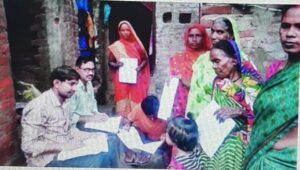
However, the currently underway Special Intensive Revision (SIR) of electoral rolls in Bihar by the Election Commission of India (ECI) and allegations of ‘vote theft’, arbitrary addition and deletion of names from electoral rolls and defective electoral rolls used in selected constituencies during 2024 Lok Sabha elections and the subsequent Maharashtra Assembly elections have also generated considerable heat. A sizeable number of voters fear that during SIR they may be disenfranchised as they may not be able to produce the documents that are being asked for in the short period during which this exercise is being carried out. It seems that the slogan ‘vote chori’ is slowly gaining traction in different parts of the country.
In this article, I will be focusing on the issue of purity of elections and how it is the duty of all stakeholders to cooperate and ensure that the principle of ‘free and fair elections’ is not compromised at any cost.
First we will analyse three cases mentioned above relating to local government elections. Panchayat election in Buana Lakhu village in Panipat district of Haryana was held across six booths on November 2, 2022. EVMs were used during the voting process. During the counting process, the Presiding officer of Booth no. 69 allegedly switched the votes polled by the two major contestants. Accordingly, Shri Kuldeep Singh was declared elected by a margin of 313 votes and certificate was also handed over to him. This result was contested by Shri Sachin Kumar and the same day the Deputy Commissioner, Panipat had the EVMs of all six booths brought to the district headquarters and recounting was done. In the recounting, Shri Sachin Kumar was declared the winner by a margin of 51 votes. However, Kuldeep Singh refused to accept this result, filed a case in the High Court and obtained a favourable judgment in March 2024. Sachin Kumar did not give up and the case eventually reached the Supreme Court. On July 31, 2025 SC ordered a full recount of all the booths under the supervision of the Registrar of the Supreme Court. Recounting took place on 6th August, 2025 in SC premises and on August 11, the SC declared the petitioned Shri Sachin Kumar as the victor by a margin of 51 votes. Two days later the notification was issued and Sachin Kumar was duly sworn in as the GP President. It has been reported that a show-cause notice would be issued to the concerned presiding officer. The then State Election Commissioner is reported to have said that the authorities had immediately ordered recounting of votes and had rectified the results in November 2022 and did not issue the notification or allowed swearing in of the ‘wrongly’ declared elected GP President. Shri Singh was sworn in only in March 2024 following the orders of the High Court.
This is reportedly the first instance where recounting of EVM was ordered by the Supreme Court and the same was undertaken in SC premises under the supervision of a SC official. The result tallied with the result of the recounting ordered by the Deputy Commissioner of Panipat in November 2022. So the EVMs were safe and their data had not been tampered with even after a passage of over 32 months. The EVMs were validated but the role of the Presiding Officer (PO) of Booth no. 69 was not. The dubious role of the PO was out in the open since November 2022. But no action had been taken. Now that the culpability of the PO has been proved in the SC it still remains to be seen what punishment is finally awarded to the errant official.
In case of the Chandigarh Mayor election, the partisan role of Shri Anil Masih, a Councillor appointed by the Deputy Commissioner (prescribed authority) under the provisions of the Regulation 6(1) of the Chandigarh Municipal Corporation (Procedure and Conduct of Business) Regulations 1996 to preside over the electoral process was there for the world to see. It was adversely commented upon by the Supreme Court[iv]. The Court noted that the case was not related to alleged malpractice by candidates in an election but ‘electoral misconduct by the presiding officer himself’. The Court went on to observe that “the brazen nature of the malpractice, visible on camera, makes the situation all the more extraordinary, justifying the invocation of the power of this Court under Article 142.” A notice was issued to Anil Masih asking him to reply as to why steps should not be initiated against him under Section 340 of the Code of Criminal Procedure 1973. However, it seems that while the said section relating to perjury provides for imprisonment for a period upto seven years, the said Councillor got away with a mere unconditional apology and continues to participate in the meetings of the Chandigarh Municipal Corporation[v]. It may be noted that the State Election Commission of Union Territories has no role to play in the annual election of Mayor by the Councillors in Chandigarh Municipal Corporation.
In the third instance cited above, the case seems to be more straight forward. Goons, acting on instructions, kidnap five District Panchayat members before they can reach the voting centre to cast their votes in election of the District Panchayat President. When the matter reached the High Court, affidavits, duly signed by the missing persons, were produced stating that they were safe, had not been kidnapped and were ‘not voting’ out of their own volition even as their family members alleged otherwise. The District Administration dutifully informed the court that they could not trace the allegedly ‘abducted’ District Panchayat members till the end of elections. Typically, large amounts of money change hands even to make voters ‘abstain’. In some States there are allegedly instances of the police themselves keeping these ‘voters’ in their ‘protective custody’ and not letting them reach the voting centre till such time as the polling process is on. There is no evidence available in the public domain of the State Election Commission (SEC) taking suo motto cognizance of such incidents even when these have been reported in the media. Some State Governments feel that holding ‘direct’ elections for the post of District Panchayat President would help in checking these electoral malpractices.
Then we have the issue of defective electoral rolls. The procedure for preparing electoral rolls, addition or deletion of names, undertaking summary revision and/or intensive revision have been laid down in the Representation of People Act, 1950 and the Registration of Elector Rules, 1960. The recent controversy around electoral rolls has focused attention on the need to ‘clean’ electoral rolls using both technological tools and human interface. The way officials of the Election Commission of India (ECI) are taking refuge behind technicalities[vi] and refusing to acknowledge and address the problem with the support of all stakeholders is shocking and is doing immense damage to the credibility of the institution. Purity and sanctity of elections can get vitiated if the electoral roll is defective.
Earlier, the issue of tampering with EVM and mis-match between EVM vote count and VVPAT papers had flared up and the case went right upto the Supreme Court. The unnatural surge in votes polled during the last hour in some elections (even when no long queues were to be seen at polling stations when polling officially ended) and the delay of several days before ECI published the final polling figures also raised eyebrows and questions in quite a few circles. This has again not been satisfactorily explained by the ECI till date. The timing and manner of announcement of elections, enforcement of model code of conduct etc. by the ECI also seem to strengthen the public perception that it is tilting towards the ruling party and is not serious about providing a ‘level playing field’ to the opposition parties. The urgency and manner in which laws were amended regarding providing copy of CCTV footage to candidates in addition to manner of appointment of Election Commissioners and the Chief Election Commissioner (CEC) also created doubts in the public mind. Unfortunately, the net result is that today credibility of the ECI is at its lowest in the last three decades.
How and why has this happened? Provisions of the same Representation of People Act, 1950 and the Registration of Elector Rules, 1960 had been used by successive Election Commissioners beginning with Shri T.N.Seshan and J.M.Lyngdoh which helped the ECI to check the malpractice of ‘booth capturing’ widely prevalent in parts of undivided Bihar and Uttar Pradesh and put in place systems and practices which enhanced the prestige and strengthened the credibility of the ECI. Shri T.N.Seshan had famously remarked to the effect that ‘he was not the Election Commissioner of Government of India but the Election Commissioner of India.’ The example set by the ECI percolated down to the field officers and once model code of conduct came into force, District Magistrates and SDMs all over the country would begin to function as officers of the ECI and not the State government. Consequently, even CMs and Ministers were wary of giving instructions and there was no question of those instructions being complied with if those were designed to favour one party.
However, in recent times things have changed. Acts of partisanship by officials engaged in election duty have been reported and no action taken. Even State Governments are now refusing to take action against their officers engaged in election duty (even when asked to do so by the ECI)[vii] if they are perceived to be furthering the interest of the ruling party. As mentioned earlier, the Supreme Court found the conduct of the Presiding Officer in the Haryana GP election and the Mayoral election of Chandigarh Municipal Corporation amiss. They deliberately acted in a manner that was partisan, illegal and unjust. Similarly, dereliction of duty by public officials engaged in maintenance of law and order and responsible for ensuring free and fair elections is a serious issue. Likewise, tampering with evidence and perjury (lying on oath in a court of law) ought to be serious offence and the culprits granted exemplary punishment. However, that does not seem to be the case in India.
All the instances cited above highlight the critical role of the CEC and ECs of the ECI and the State Election Commissioner (SEC) (responsible for holding local government elections) and the vast government machinery, placed under the control of the ECI and the SEC for the duration of the election process, in esnsuring free and fair elections. During the election process all District Magistrates, SDMs, BDOs and staff of revenue and Police department are under the administrative control of the ECI and the SEC. Collusion of electoral machinery with any political party would vitiate the entire electoral process. In such a situation, holding ‘free and fair’ elections would become well neigh impossible.
It is time to fix responsibility and punish the culprits. The CEC and the ECs must realize that they are occupying constitutional positions with enough safeguards to protect their bonafide decisions. The example set by them will be picked up by the Chief Electoral officers of the ECI in the States and the Returning and Presiding Officers appointed by the ECI or the SEC. Any instance of partisan and illegal behaviour on the part of any officer engaged in any election process must be dealt with an iron hand. Ensuring a free and fair electoral process till such time as the conduct of election has been completed is imperative to maintain the legitimacy of and trust in representative democracy.
Since correct electoral rolls, whether for Parliament & Assembly or Local Government elections, is the basic building block around which the entire edifice of democracy is constructed, it is necessary to involve all stakeholders in the process. Sticking to procedures designed over 65 years back makes no sense in the digital age. The electoral process should be an inclusive process where all eligible voters get to exercise their constitutional right to vote and elect their representatives.
The task is easier now as the electoral rolls have been digitised. It is high time complete digital electoral rolls are made available on the website of both the ECI and the SEC. The responsibility of preparation of electoral rolls should be that of the ECI. Nearly 23 States are already using the same electoral rolls for Assembly as well as local government elections. The idea of ‘one nation, one election’ is being seriously debated – at least for the Lok Sabha and Vidhan Sabha elections to begin with.
A beginning can be made in this direction immediately by having a common electoral roll for all elections. It would be ideal if booths are organized ward-wise and electoral rolls prepared accordingly. This will result in slight increase in the number of booths initially in the rural areas but would be very convenient from the voter’s point of view. The Local Government Directory (LGD) code can be used to identify the booths. It will make the whole process seamless. Incidentally, during the current census operations, the Registrar General of India would also be using the LGD code.
Next, by making available the digital copy of the electoral rolls to everyone, whether worker of a political party, a citizen group or even a voter, the ECI would be taking all stakeholders into confidence. The greatest stakeholder is the voter. Let them study it, undertake digital scrutiny, identify duplicate / deceased / bogus voters and bring it to the knowledge of the designated officials of ECI who, would then be duty bound to analyse, undertake physical verification and then publish the draft electoral rolls. Use of AI, digital forensic audit and other latest tools available should be made use of by the ECI to ensure ‘correctness’ of electoral rolls. Thereafter, the process laid down in the Rules can be followed. Through this measure, in one fell swoop, the stranglehold of political parties and their Booth level Agents (BLAs) and local government servants designated as BLOs (Booth level Officers) over the entire process relating to preparation of electoral rolls would be demolished. The law should be amended to provide exemplary punishment to the officers responsible for preparation of electoral rolls for malafide acts of omission and commission.
Impersonation of voters is a cognizable offence. However, authorities have generally taken a lenient view of such offences and offenders are let off with a warning at most. This leniency must stop. Message must go to voters that this is unacceptable and the law would be applied ruthlessly on those found involved in such acts. Collusion of booth level agents appointed by the political parties must also be seriously dealt with and not swept under the carpet as presently seems to be the case. They are there to assist in holding ‘free and fair’ elections and not promote ‘corrupt practices’.
Acts of omission and commission by presiding officers during polling, counting supervisors during the counting of votes should also invite exemplary punishment. All officers involved in the election process, including police personnel, need to adhere to the well laid down electoral process. If any police officer or personnel is found involved in intimidating voters and preventing them from reaching the polling station, then they must be severely dealt with. All electoral offences must be registered, investigated and charge sheet filed within a specified period. This must be regularly monitored by the DM at the district and by the Chief Electoral officer at the State level. The present arrangement where all such cases recede into the background once the election results have been announced and withdrawn or closed if they involve workers of the ruling party and prosecuted if they involve workers of the opposition parties must end forthwith.
Thus, involving all stakeholders and especially the voters in ensuring the purity of the election process would go a long way in restoring and enhancing the credibility of the ECI. Correct and pure electoral roll constitutes the bedrock of the entire electoral process. Greater transparency and involvement of voters and political parties in this exercise would greatly help the ECI and the SEC. The practice of asking complainants to file sworn affidavits can, at best, be termed as ‘evasive’ tactics designed to scare away the complainants and make life easy for the officials. This is akin to asking any person lodging a FIR to also submit a sworn affidavit in the Police Station.
Both the ECI and the SEC would need to send a clear message to lakhs of Government officials involved in the electoral process that they are responsible for ensuring free and fair elections and any misdemenour on their part would invite the wrath of the ECI and SEC. Once the credibility of the ECI and SEC is established, State Governments would find it difficult to shield errant and partisan officers. It is also necessary that all election petitions are heard and disposed off by the designated tribunals and Courts within a specified time, say 18 to 24 months at most. Delay in deciding election petitions render such petitions infructuous. This would restore faith of contestants.
Despite the setback in recent times, it is possible and necessary to restore the credibility of both the ECI and the SEC. These constitutional bodies would need to shed their typical bureaucratic response to questions that are being raised and would need to address the issues squarely and boldly. Shortcomings in existing arrangements must be acknowledged and then measures taken to address them. Most problems, as on date, stem from the lack of transparency and consistency on the part of the ECI and the SEC. Greater transparency and enforcement of rule of law without fear or favour can go a long way in ensuring purity and sanctity of elections and strengthening democracy in the country.
(Sunil Kumar is a member of Pune International Centre and a former civil servant. Views expressed are personal.)
[i] A sarpanch poll fight settled after 3 years, via EVM recount in SC; The Indian Express, August 16, 2025, New Delhi, Late city edition
[ii] High drama marks Panchayat polls in Nainital; Hindustan Times, August 15, 2025, https://www.hindustantimes.com/india-news/high-drama-marks-panchayat-polls-in-nainital-101755196588485.html
[iii] Supreme Court declares AAP’s Kuldeep Kumar as the Mayor of Chandigarh; sets aside old election results; R. Sai Spandana | 20th Feb 2024; https://www.scobserver.in/journal/supreme-court-declares-aaps-kuldeep-kumar-as-the-mayor-of-chandigarh-sets-aside-old-election-results-of-tampered-ballot-papers/
[iv] In the Supreme Court of India; Civil Appeal No 2874 of 2024; Special Leave Petition (Civil) No 2998 of 2024; Kuldeep Kumar Vs. UT Chandigarh & Ors.
[v] BJP still relies on Anil Masih, the killer of democracy: Dr. SS Ahluwalia; Tuesday, Jul 09, 2024; https://www.babushahi.com/full-news.php?id=187506
[vi] Voter duplication alleged in Panvel now : The latest revelations in Maharashtra confirm what many already fear: the Election Commission no longer inspires trust; Frontline, August 21, 2025; https://frontline.thehindu.com/politics/panvel-balaram-patil-voter-fraud-duplicate-rolls-maharashtra/article69959290.ece?utm_source=engagement&utm_medium=email&utm_campaign=editorspick
[vii] ECI summons West Bengal Chief Secretary to Delhi over State’s refusal to act against erring officials; The Hindu, August 12, 2025, Kolkata; https://www.thehindu.com/news/national/eci-summons-west-bengal-chief-secretary-to-delhi-over-states-refusal-to-act-against-erring-officials/article69924921.ece



